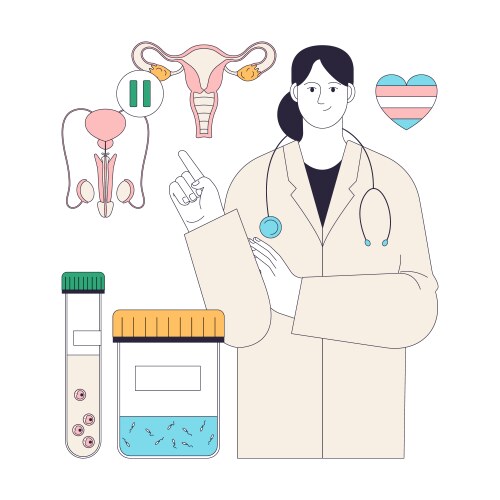Sexual dysfunction is a common and often distressing issue that can affect individuals of all ages and genders. While it can arise from various factors, including physical, psychological, and hormonal causes, seeking appropriate treatment is essential for restoring sexual health and overall well-being. In recent years, the field of andrology has emerged as a specialized branch of medicine dedicated to the study and treatment of male reproductive and sexual health issues. But can andrology treatment truly help with sexual dysfunction? Let's delve into this question and explore the potential benefits of andrology interventions.
Understanding Andrology Treatment: Andrology is a multidisciplinary field that encompasses the diagnosis, treatment, and management of conditions affecting the male reproductive system, including sexual dysfunction. Andrology specialists, often referred to as andrologists, possess expertise in addressing a wide range of issues such as erectile dysfunction, premature ejaculation, low libido, and infertility.
Andrology treatment offers a comprehensive approach to addressing sexual dysfunction by identifying underlying causes and tailoring interventions to individual needs. Here are several ways in which andrology treatment can help:
- Erectile Dysfunction (ED) Management: Erectile dysfunction, the inability to achieve or maintain an erection sufficient for sexual activity, is a common form of sexual dysfunction that can have significant emotional and relational repercussions. Andrology treatment options for ED may include oral medications, such as sildenafil (Viagra) or tadalafil (Cialis), vacuum erection devices, penile injections, or surgical implants. Andrologists work closely with patients to determine the most suitable treatment approach based on factors such as the underlying cause of ED, overall health status, and personal preferences.
- Hormone Therapy: Hormonal imbalances can contribute to sexual dysfunction in men, particularly in cases of low testosterone levels (hypogonadism). Andrology treatment may involve hormone replacement therapy (HRT) to restore testosterone levels to normal range, thereby improving libido, sexual function, and overall well-being. Hormone therapy is typically tailored to each individual's specific needs and monitored closely by an andrology specialist to ensure optimal outcomes and minimize potential side effects.
- Premature Ejaculation (PE) Treatment: Premature ejaculation, characterized by the inability to control ejaculation and achieve satisfactory sexual performance, can be a source of frustration and anxiety for men and their partners. Andrology treatment options for PE may include behavioral techniques, such as the stop-start or squeeze technique, topical anesthetics, or medications like selective serotonin reuptake inhibitors (SSRIs) to delay ejaculation. Andrologists collaborate with patients to explore these options and develop personalized treatment plans to address premature ejaculation effectively.
- Psychological Counseling and Support: In addition to medical interventions, andrology treatment often incorporates psychological counseling and support to address underlying emotional factors contributing to sexual dysfunction. Andrologists work closely with patients to identify stressors, relationship issues, performance anxiety, or other psychological barriers to sexual health and intimacy. Counseling techniques such as cognitive-behavioral therapy (CBT) or couples therapy can help individuals and couples overcome these challenges and improve sexual satisfaction and intimacy.
Conclusion:
Andrology treatment offers hope and solutions for men grappling with sexual dysfunction, empowering them to reclaim their sexual health and vitality. Whether it's addressing erectile dysfunction, hormonal imbalances, premature ejaculation, or psychological barriers, andrology specialists employ a comprehensive approach to diagnosis, treatment, and support. By seeking timely and appropriate care from a qualified andrologist, individuals can take proactive steps toward resolving sexual dysfunction and enhancing their overall quality of life. Remember, you don't have to suffer in silence—help is available, and you deserve to experience fulfilling and satisfying sexual relationships.





Comments